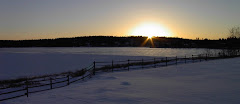Recently I have been watching Schwartzwaldhaus 1902 and Abenteuer 1900: Leben im Gutshaus.
Both are about life at the turn of the 19th century in Germany. The first is about a farm in a mountain valley of the Black Forest. A Berlin family moves to this farm to try and live as it was in 1902. What struck about this is how life on this farm was in so many ways closer to 1602 than 2002. No electrical power, no running water, no home entertainment, really nothing much more than work to keep the family sustained. On going daily back breaking work is the one central focus of life.
This is only 109 years ago.
My one grandfather was born in 1902 and the other in 1881. This is what the world was like for most people in the 'first world'. In 1902 most people in Germany, France, Canada and even the UK still lived on farms. The fundamental change in technology and how people lived in 109 years is astonishing. The Black Forest farm was not among the global poor in 1902, but today if one lived like that, one would be on the bottom 10% the global incomes.
The second one is about life on an estate in Germany in 1900. In this one it is not so much about changes in lifestyle and technology, they are big, but about what life was like in a house like this. My family were the "Herrschaften" in estates like this in 1900. My father's family owned Limmat. My mother's family had Kattentack. Limmat was a small estate, it is Kattentack that is like the one in the program, the scale of house that is beyond what anyone could use for a family.
The program has 20 people live in the estate of Belitz for eight weeks as if it was 1900, though it should be noted that the actual building used in the show was built in 1906. There is a family of eight that are the Herrschaften and the rest of the people are the servants. In 1900 my family would have been the Herrschaften.
A quick detour about the word "Herrschaften" - it is a word that I grew up with that if you ask me to define I would still have trouble. What came across to me all my life is that it means the gathered people. This comes from my family being part of the nobility and it astonishes me because how long that has held through within my family. It has been 94 years since we really had the status of nobility and 66 years since we had any standard of living better than the average . In reality the word means gentry, sort of, it is also an old fashioned polite term a group of people, sort of like "gentemen".
The standard of living of the family in program is decent, but it is not luxury in the sense I would think of it now. The house is huge and the family wants for nothing, but because of technology their standard of living is missing so much of what is possible for people today. The only way they can make up for it is by having a house full of servants to make it possible.
The program focuses primarily on the servants, which is not really that surprising because that sort of work is really no longer at all done. Having a house full of servants like this would cost someone something on the order of $500,000 to $800,000 a year. There are very few people who could afford this today, not that they need them any longer in any case.
What strikes me is how much energy and effort that was required to maintain the estate and these servants are not the people that were actually producing the wealth of the estate. I wonder if the success of Canada, the US and Australia between the 1880s and 1930s was in part due to the countries being much more egalitarian and not wasting so many resources on so few people?
For the servants there is no life. They are servants from when they wake to when they go to bed, there is no time for themselves. The life of these people was one of survival, working all the time so they had a place to live and food to eat with almost no income. They could not live in their own space, they could not marry.

No comments:
Post a Comment